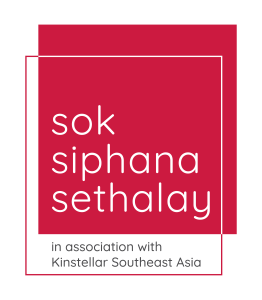Cambodia Adopts New Law on Investment
On 15 October 2021, Cambodia adopted a new Law on Investment (the “New Investment Law”). The new law aims to establish an open, transparent, predictable, and favorable legal framework to attract more investors and enhance the quality and efficiency of investments in Cambodia.
The New Investment Law applies to all Qualified Investment Projects (“QIP”), Expanded Qualified Investment Projects (“EQIP”), and Guaranteed Investment Projects (“GIP”), registered with the Council for the Development of Cambodia (“CDC”) or the Municipal-Provincial Investment Sub-Committees. The New Investment Law replaces the 1994 Law on Investment and its 2003 amendment.
Notable key features of the New Investment Law are briefly discussed below:
- Two new types of investment projects are included and allowed for registration: As per the previous laws on investment, QIPs are divided into three types: (i) Export QIPs, (ii) Supporting Industry QIPs, and (iii) Domestically Oriented QIPs. Notably, the New Investment Law has also established two new types of investment projects: namely, the EQIP which refers to an expansion of a QIP in any form (e.g., an upgrade in new technologies or infrastructure to the previous investment project) and the GIP which is a type of investment project that is “guaranteed” but not eligible for tax incentives.
- Investment guarantees and protections: Under the New Investment Law, investors are entitled to restitution, compensation or other economic remedies for losses due to armed conflict, civil disturbance or in the event of a state of emergency. In addition, the New Investment Law also provides for, inter alia, fair treatment between domestic and foreign investors (albeit restrictions on land ownership still remains), protection against nationalisation or expropriation, prohibition against price fixing by the government, freedom with regards to foreign exchange and profit repatriation, and protection of the investor’s intellectual property.
- Investment sectors and activities that are entitled to incentives: The updated list of promoted investment activities includes, among many others, high-tech industries that involve innovation or research and development, innovative or highly competitive new industries or manufacturing that provide high added value, digital industries, health care, agriculture, green and renewable energy, education, environmental protection and any sectors that are deemed by the Government to have potential for socio-economic development.*Note* Until it is replaced by new regulations, Sub-Decree No. 111 dated 27 September 2005 of the Royal Government of Cambodia still regulates sectors and investment activities that are either prohibited or ineligible for incentives under the New Investment Law.
- Investment incentives for QIPs: One of the most significant developments following from the New Investment Law is the newly updated incentives for QIPs. With regards to the basic incentives to be granted to QIPs, the New Investment Law permits investors to choose between two options:
- Under the first option, investors may be entitled to an income tax exemption for a period of three to nine years, depending on the investment sector and activities. Once such period has expired, investors are also entitled to pay income tax at reduced rates for the next six years.
- Whereas the second option would allow investors the right to offset capital expenditures via special depreciation for a period of up to nine years.
In addition to the abovementioned incentives, the basic incentives also include prepayment tax exemptions, minimum tax exemptions, and export tax exemptions. Further, QIPs may also be eligible for additional incentives such as value-added tax exemption for the purchase of locally made production materials and deduction of 150% from the tax base for the expenses related to research, innovation, upgrade of machineries to serve production line, as well as construction of facilities and provision welfare benefits for workers/employees.
Pursuant to the New Investment Law, other specific incentives may be provided to any sector and investment activities that have the potential to contribute to national economic development. Further, it should also be noted that the income tax exemption for EQIP is to be determined in a separate Sub-Decree.
- Approval for private investments and settlement of disputes by Municipal-Provincial Investment Sub-Committees: Under the former legislation, only the CDC was authorised to grant approval to proposed investment projects. The New Investment Law, however, has delegated the power to review and approve investment projects as well as the authority to settle investment project-related disputes to Municipal-Provincial Investment Sub-Committees, the procedures and organisation of which will be determined by a separate Sub-Decree. If not successfully resolved, then the investors may refer the dispute to national or international arbitration for settlement or to the competent courts in Cambodia.
The New Investment Law is intended to serve as a stepping-stone for Cambodia to becoming a more attractive investment destination by giving a wider range of incentives, guarantees, and protections for both domestic and foreign investors. To make the Kingdom more attractive and considerate for the investors, the New Investment Law also ensures investors of Cambodia’s commitment to protect their investments as well as to guarantee treatment in accordance with international law and standards.
If you need any assistance or require further information, feel free to contact Dr. Sok Siphana, Visot Nom, Sin Soromnear or Hout Sreypich at SokSiphana&Associates.
This alert is for general information only and is not a substitute for legal advice.





